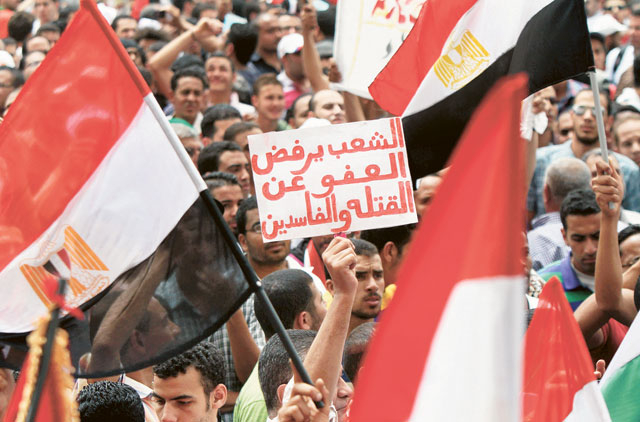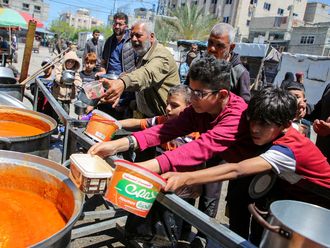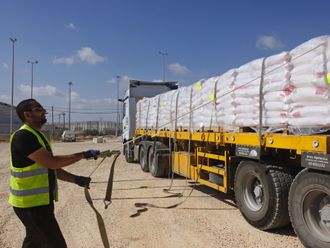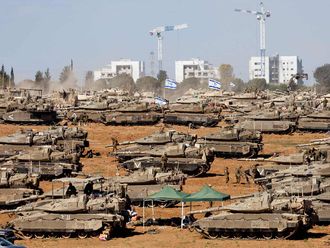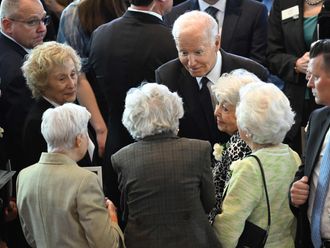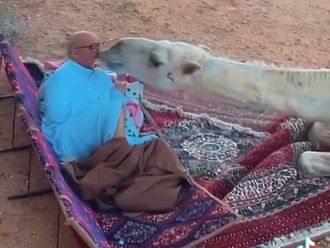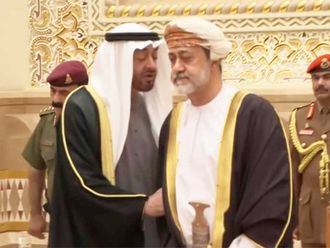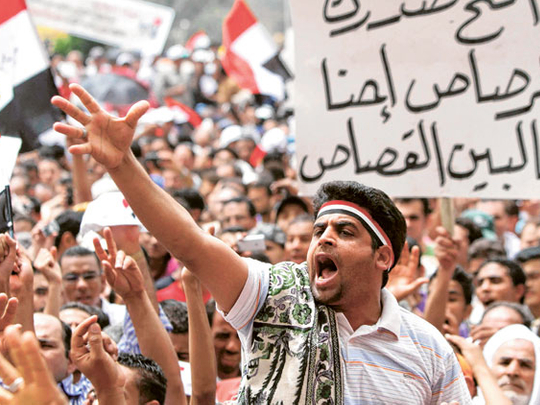
Cairo: Thousands of protesters yesterday returned to downtown Cairo's Tahrir Square for what they called a ‘second revolution,' calling for Egypt's military rulers to speed up the pace of democratic reforms in a country that is still charting its political future.
Protesters carried banners reading the "Egyptian revolution is not over" and chanted the slogan.
Christians and Muslims took turns praying in Tahrir Square, as they did in the protests that forced the ouster of former President Hosni Mubarak in February. Sectarian clashes have turned deadly since the revolution.
Dubious elements
The ruling military warned that ‘dubious' elements may try to cause chaos during yesterday's protests, and said it would stay clear of the protest area to avoid any friction.
Mohammad Al Baradei, the Egyptian Nobel Peace Prize winner and a reform leader, said that he was "seriously concerned about the absence of security forces."
The military's leadership of the country's democratic transition has left many protesters dissatisfied. "I came here because I didn't feel that Egypt changed," technician Raafat Hendi said, under huge posters calling for a new constitution.
Some critics accuse the military rulers of collaborating with the former regime and being too lenient in its prosecution of Mubarak, his family and regime members. Mubarak now faces trial on charges of conspiring to kill protesters.
"Our biggest fault is that we left Tahrir Square before seeing Mubarak inside a courtroom being tried," 24-year-old salesman Ahmad Shawqi said.
Two days before the protest, the prosecutor general ordered Mubarak and his sons to be tried over charges of ordering the killing of protesters during the uprising, along with other charges.
The step was seen as a way to prevent protesters from returning to Tahrir Square.
The Muslim Brotherhood, Egypt's best organised political force, opposed the protest and called it an attempt to drive a wedge between the military and the people. The Brotherhood's absence will test the ability of liberal and secular groups to launch their own sustained opposition movement.
Some liberal groups are calling for planned parliamentary elections, now set for September, to be pushed back so that they will have more time to prepare. The Brotherhood, however, stands to make major gains and wants the vote to go ahead.


